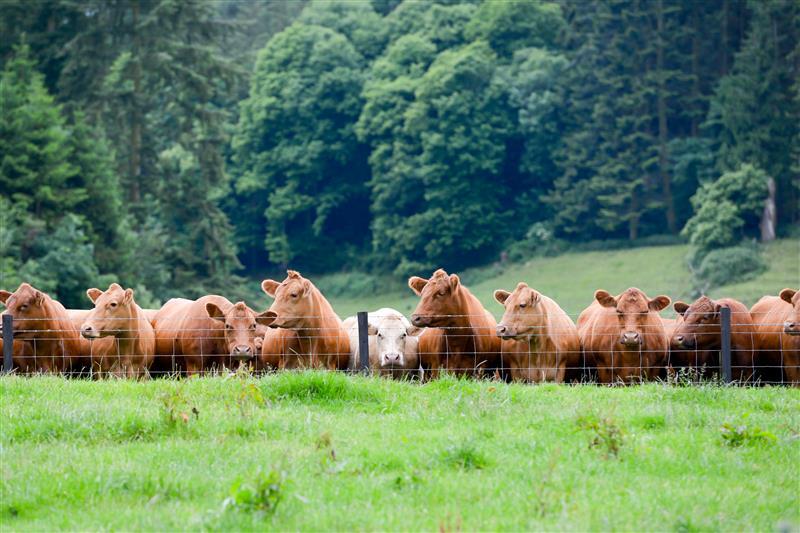Extended Producer Responsibility (EPR) regulations are changing with regard to how organisations collect data about their packaging. Learn about what is involved in this comprehensive guide.
What is Extended Producer Responsibility?
Extended Producer Responsibility (EPR) is a regulatory strategy that holds producers accountable for the post-consumer stage of their products, including the collection and management of data related to packaging. The aim is for companies to design environmentally friendly packaging by making them liable for the costs and data management associated with their products at the end of life. Essentially, EPR is based on the “polluter pays” principle, where businesses that produce packaging are made responsible for the costs, data collection, recycling, and disposal.
How are the current EPR regulations changing?
The main purpose of this article is to summarise the significant changes affecting EPR regulations in the UK, and how businesses can prepare for them. Here are key alterations businesses should be aware of:
-
The requirement to register with a compliance scheme: Businesses that produce packaging must register with an approved compliance scheme so that they meet their recycling obligations and pay fees for the amount of packaging they put into the UK market. In addition, they will be required to collect and store data related to waste and recycling in the interest of accountability.
-
Regulations for the tracking and reporting of quantities of goods: Businesses need to track and report the quantities of packaging they place on the market via consumer goods. This includes collecting and storing data related to the amount, type, and destination of waste - the focus is on increasing transparency and accountability in the management of packaging waste.
-
Regulation of disposal of take-back schemes for products: Businesses will have to provide facilities for customers to return their products once they reach the end of their lifecycle, while collecting and storing data on the amount of waste generated and recycled through the scheme. This will facilitate data-driven insights for making recycling and waste management more efficient and sustainable.
It’s also important to note that new EPR schemes will influence sectors in different ways - rather than being a one-size-fits-all approach. Here is a closer look at how EPR regulations affect the management and disposal of materials that are likely to be specific to certain sectors:
-
Textiles: It’s been reported that clothing and textiles currently comprise 7% of total global landfill waste. While some well-known brands are publicising their sustainability efforts - as a whole manufacturers and businesses need to implement better waste management practices. This involves prioritising recycling, promoting circular economy principles, and minimising the environmental impact of textile production.
-
Bulky waste: Large and non-compliant items, such as furniture, appliances, and electronics, require special measures for proper disposal and recycling. This may include dedicated collection points, implementing waste-to-energy technologies or encouraging the reuse of bulky items through donation. This can reduce long-term landfill strain and promote resource recovery.
-
Construction and demolition materials: In 2016, it was estimated that construction and demolition generated 62% of the UK’s total waste (a total of 66.2 million tonnes). New EPR regulations will enhance the tracking of waste streams, as part of an industry-wide duty of care to classify waste properly and send it to sites where it can be handled appropriately.
-
Fishing gear: Fishing gear is an increased area of focus in terms of European EPR regulations. According to research, fishing gear makes up for up to 27% of litter on European beaches. As well as having a wider environmental impact, the improper disposal of fishing gear can be devastating for marine life. Businesses must therefore implement collection and recycling programs for used or discarded gear, preventing it from becoming marine debris and protecting our oceans.
How will EPR regulations differ in the UK and Europe?
EPR regulations not only vary across the UK and Europe in terms of their implementation but also the practical collection and storage of data. For example, while some countries require producers to report data on their products and packaging to a central authority, others rely on compliance schemes.
In the UK, EPR regulations require producers to report data on the weight of their products and packaging, as well as the costs associated with their end-of-life management, to the government-approved compliance scheme. However, in France, producers are required to report data on the quantities of products and packaging they place on the market, as well as their recycling and recovery rates, to the national agency.
Furthermore, some European countries have adopted more advanced data collection and reporting systems, such as the German Packaging Register, which requires producers to submit data on their products and packaging to a publicly accessible database. Similarly, the Dutch government has implemented a digital platform for the reporting of packaging waste data, which allows for real-time monitoring and analysis.
How are changes to EPR regulations going to affect businesses?
The introduction of new EPR regulations will have a significant financial impact on businesses. These require producers to collect and store data about their products and packaging, including information about the amount, type, and destination of waste generated, recycling rates, and costs associated with end-of-life management. Businesses must therefore invest in the necessary infrastructure to store and report this data, as well as consider any financial penalties for non-compliance.
Fortunately, businesses can take certain measures to reduce the financial burden of EPR regulations. One such measure is investing in technologies and tools that make it easier to collect, store, and report data. For example, implementing a software solution for tracking waste streams from production, distribution, and disposal can help producers save time and money by automating data collection and reporting processes. While this will necessitate some upfront costs, the long-term savings are likely to be substantial.
Businesses can also benefit from partnering with waste management companies to improve their practices. These companies can use EPR regulations to help producers identify opportunities for improvement, such as areas of over-production or potential for resource recovery, and guide how to make the necessary changes.
What do businesses need to do to comply with changing EPR regulations?
The potential impact of EPR regulations can vary dramatically depending on an organisation’s size. In this context, 'large' organisations are defined as those with a turnover of over £1 million and that handle more than 50 tonnes of packaging per year. All others are classified as 'small' (UK government guidance on EPR explores this in more detail). Large businesses must complete the following actions annually (whereas small businesses are required to do so every three years):
-
Collecting data to report on supplied and imported packaging: Businesses need to maintain detailed records of the packaging they supply or import into the UK. This should include the weight, material type and recycling status of all packaging.
-
Paying waste management, regulation and administration fees: Organisations are required to pay fees proportional to the amount of packaging they handle annually, which fund waste management, administration costs, and environmental regulation.
-
Reporting ‘nation data’ for supplying and discarding packaging: Nation data refers to the weight of packaging an organisation has supplied or discarded, broken down by material type and UK region.
What third parties can help businesses prepare for EPR regulations?
Numerous third parties can assist organisations in complying with EPR regulations. Consultancies can offer expert advice on EPR compliance, while waste management companies can help improve waste practices and identify opportunities for waste reduction and recycling.
Data management platforms can provide solutions for collecting, storing, and reporting packaging data. Foods Connected, for example, offers data-driven insights for companies’ CSR initiatives - including sustainability. With our tool, information about procurement and sourcing can be centralised in a single location, so that the entire supply chain is aligned on procedures and environmental impact.
Most importantly, Foods Connected allows for the fastidious monitoring of packaging consumption data. Companies can use a wide array of metrics for recycling and packaging consumption, whilst also reporting on waste and composition in adherence to EPR guidelines. Learn more about using Foods Connected for CSR management and request a demo today!
Foods Connected offers a range of award-winning software solutions for the food industry. In particular, Foods Connected can be used to strengthen and manage supply chains and optimise procurement, reducing costs while guaranteeing the highest levels of food safety and quality.

Alex Chenery-Howes
Stay up to date
Stay up to date
Browse Posts
- February 2026
- January 2026
- December 2025
- November 2025
- October 2025
- September 2025
- August 2025
- July 2025
- June 2025
- May 2025
- April 2025
- March 2025
- February 2025
- January 2025
- December 2024
- November 2024
- October 2024
- September 2024
- August 2024
- July 2024
- June 2024
- May 2024
- April 2024
- March 2024
- February 2024
- January 2024
- December 2023
- November 2023
- October 2023
- September 2023
- August 2023
- July 2023
- June 2023
- May 2023
- April 2023
- March 2023
- December 2022
- November 2022
- October 2022
- September 2022
- August 2022
- July 2022
- June 2022
- May 2022
- April 2022
- March 2022
- February 2022
- January 2022
- December 2021
.png)
/Blog%20Headers/shutterstock_1927957907%20(1).jpg)
/Blog%20Headers/shutterstock_1845178195%20(2).jpg)
/Blog%20Headers/shutterstock_2133827717%20(1).jpg)
/Blog%20Headers/shutterstock_2473376713.jpg)
/Blog%20Headers/shutterstock_2247276303.jpg)





/Blog%20Headers/EUDR%20blog%202025.jpg)
/Blog%20Headers/shutterstock_1834054435.jpg)

/Blog%20Headers/shutterstock_2461210039.jpg)
/Blog%20Headers/Preparing%20for%20the%20EU%20Deforestation%20Regulation%20(EUDR)everything%20you%20need%20to%20knowjpg.jpg)

.png)
/Blog%20Headers/shutterstock_2174607735.jpg)